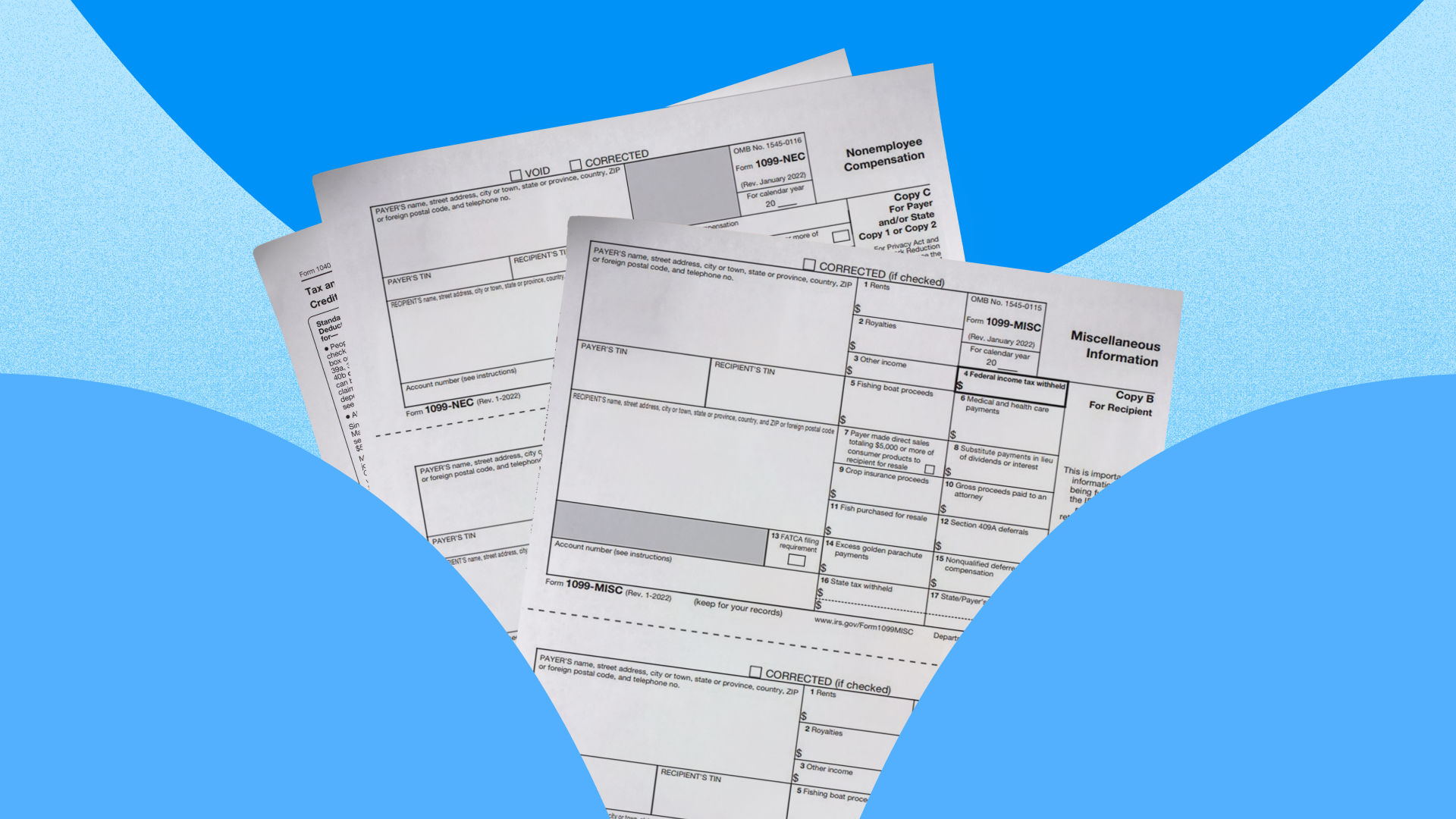If you’re just starting your own business or trying to grow your company without letting costs getting out of hand, you might have freelancers and independent contractors as part of your team.
The last few years saw a significant increase in the hiring of independent contractors, although the rise in freelance work was already well underway before 2019. Today, there are over 73 million freelancers, and that number is expected to grow to over 90 million in the next five years. With that in mind, it benefits employers to know how to manage the necessary tax forms that come with hiring freelancers and independent contractors. Not sure where to start? We’ve got your back.
Employee or Independent Contractor?
For a number of reasons (including tax implications), it matters how you decide to classify the workers in your company.
According to the IRS, independent contractors are individuals who “offer their services to the general public…[where] the payer has the right to control or direct only the result of the work and not what will be done and how it will be done.” In general, if your company engages an independent contractor, you tell the individual what the scope of the work is, but you don't have control over how the contractor achieves the desired result.
Often, the terms freelancer and independent contractor are used interchangeably (as we’ll do in this article). When it comes to the IRS they’re considered one and the same.
Traditionally, the distinction between an employee and an independent contractor includes the following:
How they're paid
Their eligibility for benefits
How employers pay taxes
For example, a company does not withhold taxes for independent contractors, and does not pay health insurance or have to provide paid time off.
It’s vital that your company classify workers correctly. If your company makes an error in classification, the government can impose significant monetary and legal repercussions.
Likewise, there are very specific laws that guide the reporting of income and other expenses incurred by independent contractors. In order to remain compliant with those laws, it’s necessary to use the correct forms to report their income accurately.
IRS Forms 1099-NEC and 1099-MISC
Did you know the IRS lists over 20 different 1099 forms? All of those 1099 forms are used to report different types of income, like freelancer or independent contractor payments.
The good news is that, as an employer, you’ll probably have to focus on just the two most common 1099s:
1099-NEC
1099-MISC
Even if these two are the only 1099 forms you’ll end up dealing with, it’s important to understand them fully. Let's dig a little deeper into some of the conditions and situations where each 1099 is used.
What is 1099-NEC?
The 1099-NEC is used to report income from independent contractors, self-employed individuals, and other non-employees. If a freelancer is compensated $600 or more for their services during the tax year, the U.S. government requires they be issued a Form 1099-NEC.
The payer (your company) is required to complete the 1099-NEC and send it to both the IRS and the payee in a timely manner to report the income.
The 1099-NEC is also used to report non-employee compensation — think things like commissions and fees.
Your company will want to run a year-end report to determine which independent contractors were paid $600 or more during the previous tax year, and then issue completed 1099-NEC forms to them along with the IRS.
The filing deadline for Form 1099-NEC is traditionally January 31 every year, so mark your calendar. Why? Because failing to file on time means the IRS may impose financial penalties on your business. And who wants that?
What is 1099-MISC?
The other 1099 form in question — the 1099-MISC — reports miscellaneous forms of payments. This can include (but isn’t limited to):
Royalties of $10 or more
Rents of $600 or more
Medical and health care payments
Other miscellaneous forms of payment
It’s interesting to note that, starting from the tax year 2020, non-employee compensation previously reported on Form 1099-MISC is now reported on Form 1099-NEC. This change was made to separate non-employee compensation from other types of miscellaneous income.
1099-NEC vs 1099-MISC: Use Cases
If you’re still feeling a bit unsure about the difference between forms 1099-NEC and 1099-MISC, here are some examples of when each form might be used:
1099 NEC is specifically used to report non-employee compensation. Some examples include:
Independent contractors' payments or freelancers' services
Paying fees to professionals such as attorneys, accountants, or consultants who are not your employees
Paying commissions to non-employees
1099 MISC differs from 1099-NEC in that it’s used to report various types of miscellaneous income. Examples might include:
Reporting rental income received from real estate properties
Reporting royalties received from intellectual property such as books, music, or patents
Reporting income from bartering or exchange of goods or services
Reporting health care payments made to physicians or other health care providers
It’s crucial that your company remains IRS-compliant. Remember to consult with a tax professional or refer to the official IRS guidelines to ensure accurate reporting based on your company’s specific situation.
Justworks Supports You and Your Business
As a founder, you have a lot on your plate. And spending time filling out forms can feel tedious and time-consuming. Justworks PEO saves you time by filing any necessary 1099 forms with your contractors and with the government, enabling you to quickly review your contractor and vendor's filing status. Our reporting process includes a downloadable option to preview all 1099 forms that Justworks will file on your behalf. Justworks PEO is IRS Certified & ESAC Accredited, ready to deliver expert support for employers and their teams.
Not only that, but independent contractor payments can be made directly through Justworks — both for customers of the PEO and Justworks Payroll. Plus, we’ll also issue a statement of your annual payments made both through and outside of Justworks. Ready to learn more about Justworks and how we can support your small business? Contact us today and get started now.
Learn more with Justworks’ Resources
Scale your business and build your team — no matter which way it grows. Access the tools, perks, and resources to help you stay compliant and grow in all 50 states.







